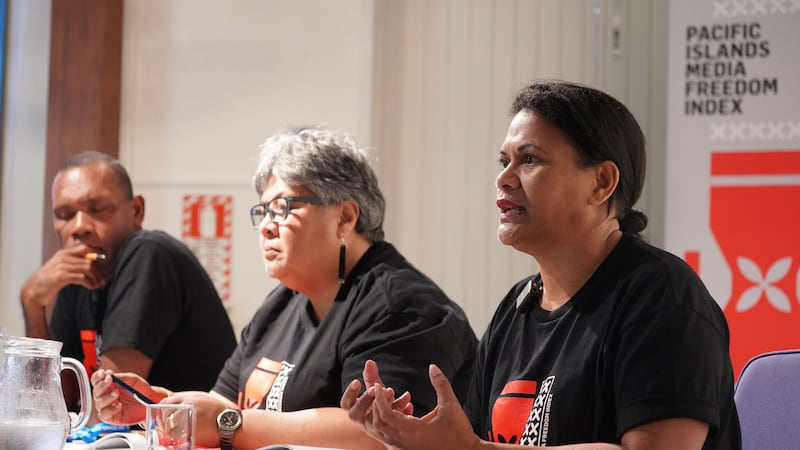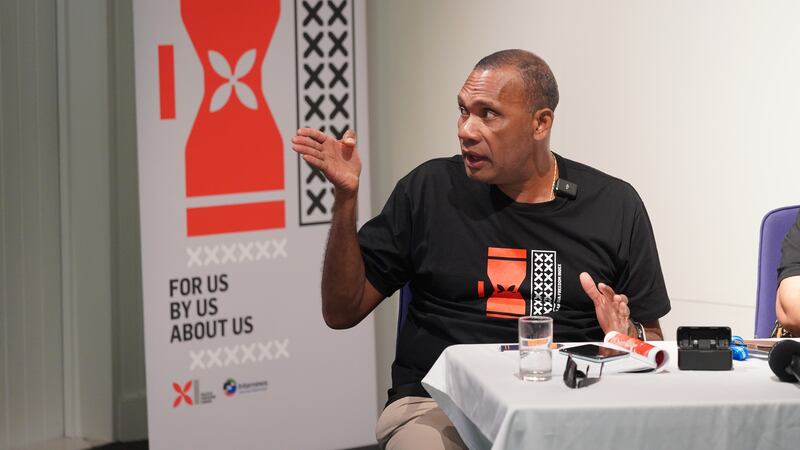The inaugural 2023 Pacific Media Freedom Index of 14 island countries has highlighted the region’s industry and journalists face significant economic and political pressures, bribes and corruption, as well as self-censorship.
The report entitled ‘For Us, By Us, About Us’ by the Pacific Freedom Forum - compiled by surveying 73 journalists and media executives - is described as the first comprehensive regional survey providing an “important baseline.”
More than half of the respondents said “political leaders ridiculed, shamed or encouraged public disrespect for members of the press” while almost a third said state-funded media “ignored major stories regarded as too sensitive for government reported by private sector news platforms.”
“Economic and financial pressure - including from advertising, capital costs, subsidies, administration, fiscal pressure, corruption incentives and bribes - ranked as the top challenge to media freedom,” said the report released on Monday at the Pacific Islands News Association summit in Niue.
While low pay for journalists has been a long-standing issue in the region, affecting retention and making them vulnerable to corruption and bribes, the report did not survey individual earnings, noting “income parity is a sensitive topic.”
Across all countries social and cultural issues weighed heavily, with a “whopping 60 per cent” of respondents reporting “journalists often practiced self-censorship due to fear of reprisals from their communities, families and others,” the PFF said.
The report also expressed disappointment with the equal split of male and female respondents as “women dominate the ranks but not necessarily the media leadership” and highlighted female journalists faced “gender-bullying, shaming and abuse” at work.
On a positive note, half of the respondents said “media workers and news platforms enjoyed a high level of trust and credibility from ‘everyday’ people’.”
Palau leads the index followed by Niue, Cook Islands and Samoa, where the industry this year has been in uproar over the media restrictions for the upcoming Commonwealth Heads of Government Meeting (CHOGM).
The lowest ranked included Solomon Islands, Kiribati, Tuvalu, with Nauru placed last.
“The top performing countries generally demonstrate strong legal frameworks, effective safety mechanisms, financial sustainability and inclusive sociocultural environments,” the report said.
Its major recommendation is for governments to strengthen legal protections for media freedom, “including decriminalization (of) defamation and ensuring robust protections for whistleblowers and investigative journalists.”
While Palau has a small media industry, responses from 10 journalists there saw it lead the PFF index. The country has enshrined protections for journalists in its constitution, including a guarantee they cannot be jailed for refusing to disclose sources.

“For an island with 17,000 people, we have two newspapers, four radio stations, about four television stations, so that in itself reflects the freedom of the press and people are willing to come out and speak their mind and talk about what's happening around the country,” Palau Media Council representative Leilani Reklai told BenarNews.
This year's U.N. World Press Freedom Index - compiled by Reporters With Frontiers (RFS) released in May reported a dramatic jump for Fiji in its rankings after the repressive "media decree" was repealed last year.
“Even as a nation like Fiji can - following the revocation of the Media Industry Development Act in 2023 - celebrate the return of media freedom after almost two decades of intense repression, there remains the impact of a generation of censorship to undo,” PFF founding co-ordinator Lisa Leilani Williams said in the report of the fifth ranked nation.
PNG plummeted in the RFS index due to proposed media laws. In the PFF report, PNG was second-lowest ranked and the only country where respondents said their primary concern was physical threats and safety.
“I’m not surprised, safety of journalists in conflict areas, especially during (tribal) revenge attacks, that's a big concern in specific areas in Papua New Guinea, like the Highlands,” head of the Media Council of PNG Neville Choi told BenarNews. Riots, massacres and tribal violence have claimed hundreds of PNG citizens’ lives in recent years.
“We've had instances of journalists being manhandled or threatened or abused. At the courthouse one cameraman had his camera smashed by relatives of someone who was in the courts and was waiting or awaiting a decision.”
Choi said PNG's draft media laws are also a cause for concern despite being watered down in the face of strong opposition from the Media Council and journalists.
Data collection on media freedom in the region has been sporadic, with the World Press Freedom Index only covering four Pacific nations - PNG, Fiji, Samoa and Tonga.

“‘For Us, By Us, About Us’ was created to close the gap, specifically in the reporting of Pacific islands media freedom issues,” said Robert Iroga, chair of the PFF, adding it is a starting point to stimulate debate.
With two-thirds of respondents from four Melanesian countries, but only one or two from other nations, the report said it “is just under a level of statistical significance” but the PFF defended its integrity.
“We believe one respondent to be a statistically sound voice for a country of two or three news journalists, particularly for the national newspapers in Republic of Marshall Islands and Federated States of Micronesia,” the report said.
The PFF index was compiled with Internews - a not-for-profit operating in more than 100 countries to strengthen independent media - funded by the U.S. government and is expected to be produced annually.
